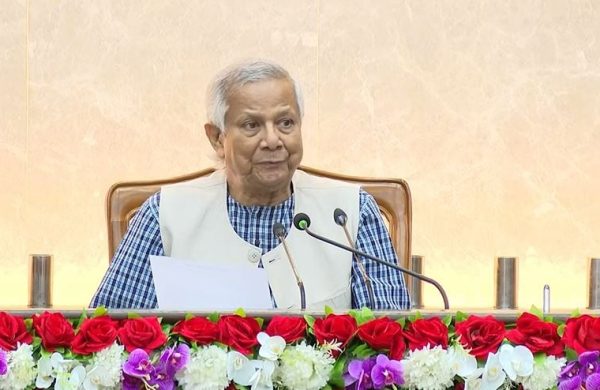Yunus warns of critical rise in NCDs in Bangladesh
- Update Time : Wednesday, August 20, 2025

TDS Desk:
Chief Adviser Professor Dr Muhammad Yunus has warned that non-communicable diseases (NCDs) are on the rise globally, with the situation in Bangladesh being particularly critical due to socio-economic challenges, high population density, and limited geographical space.
He made the remarks on Wednesday at the signing ceremony of the Joint Declaration aimed at strengthening inter-ministerial cooperation for integrated action in the prevention and control of NCDs. The event was held at the Shapla Hall of the Chief Adviser’s Office in Dhaka.
“NCDs have perhaps become the most pressing issue in national health management,” said CA Yunus. “Their impact goes beyond the health sector, affecting the economy, social security, and sustainable development.”
Citing the World Health Organization’s 2022 report, he noted that 71 percent of all deaths in Bangladesh are caused by NCDs. Alarmingly, 51 percent of these deaths occur in people under the age of 70, considered premature.
He further said that 69 percent of all personal health spending in Bangladesh comes directly from out-of-pocket expenses, most of which are linked to NCDs.
“When someone is diagnosed with cancer, families often exhaust their financial resources and, in many cases, become helpless. Sometimes, treatment abroad becomes the only option—at enormous cost. A substantial amount of our national wealth is drained each year to cover these expenses,” Yunus added.
He stressed that improving treatment services for NCDs is crucial but not sufficient. “Equally important are public awareness, prevention, and early detection strategies to reduce the incidence of these diseases.”
The chief adviser said addressing NCDs cannot be the sole responsibility of the Health Services Division, as it requires coordinated efforts across ministries.
Sectors such as food, agriculture, education, sports, local government, and public works each have a vital role to play, with specific action plans already outlined for each ministry under a broader strategy, he noted.
Yunus underscored the need for intensive cross-sectoral initiatives and highlighted the importance of fully implementing the Joint Declaration.
















